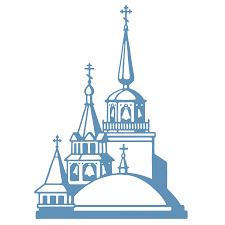The first week of Great Lent has been known since times of old as “clean week.” During this week, the Church persuades her children to come out of that sinful state into which all of mankind fell because our forefathers did not abstain. It coaxes them into coming forth by way of faith, prayer, humility and fasting which are pleasing to God. This is the time for repentance, says the Church, and chanted at Matins on Monday of the first week of Great Lent:
“Behold the day of salvation, the entrance to the Fast. O my soul, be watchful, close all the doors through which the passions enter, and look up towards the Lord.”
The services of the first week are lengthy, over the course of the first four days of Great Lent, Great Compline is served with the reading of the Great Penitential Canon of St. Andrew of Crete which sets the tone throughout Great Lent. The Canon is divided into four separate parts, one chanted at each Compline. On Thursday evening of the fifth week of Great Lent, our attention is again directed to St. Andrew’s marvelous composition, this time in its entirety, so that with the conclusion of Great Lent in sight, we might not become lackadaisical, careless, and negligent, so that we might not forget ourselves and stop strictly watching over ourselves in everything.
The Great Canon is more astonishing than any other liturgical text encountered during Great Lent. It is a marvel of liturgical hymnography, with texts of amazing power and poetic beauty. The Church decided to call it the Great Canon not so much for its length (250 verses), as for the quality and power of its content. The refrain “Have mercy upon me, O God, have mercy upon me” accompanies each verse of the Great Canon which consists of a conversation between the penitent and his own soul. The conversation begins:
“Where shall I begin to weep for the actions of my wretched life? What first-fruit shall I offer O Christ in this my lamentation? But in Thy compassion grant me forgiveness of sins.”
A marvelous troparion follows:
“Come wretched soul, with thy flesh to the Creator of all. Make confession to Him, and abstain henceforth from thy past brutishness; and offer to God tears of repentance.”
The words are astonishing, containing both Christian anthropology and asceticism: our flesh, an inseparable part of human nature and being, must also participate in our repentance. The apogee of this conversation with the soul, its constant unremitting call to repentance, comes in the kontakion sung following the 6th canticle of the Canon:
“My soul, O my soul, rise up! Why art thou sleeping? The end draws near and soon thou shalt be troubled. Watch, then, that Christ thy God may spare thee, for He is everywhere present and fillest all things.”
When we heed the words of the canon of St. Andrew of Crete, we have to ask ourselves: What must I do? If one were to fulfill God’s Law, as he ought, the contents of his life would be of quite a different composition. It is for this reason that the Church offers us this profound Great Lenten Penitential Canon, so full of feeling and conviction, so that we might look deeper into our souls and see what is there.
Several troparia in honor of St. Andrew, composer of the canon, and to St. Mary of Egypt are also included. When in the year 680 AD, St. Andrew traveled to Constantinople for the 6th Ecumenical Council, he brought with him and made public both his great composition and the life of St. Mary of Egypt, written by his compatriot and teacher, Sophronios, Patriarch of Jerusalem. The Life of St. Mary of Egypt is read together with the Great Canon at Matins on Wednesday of the fifth week of Great Lent.

